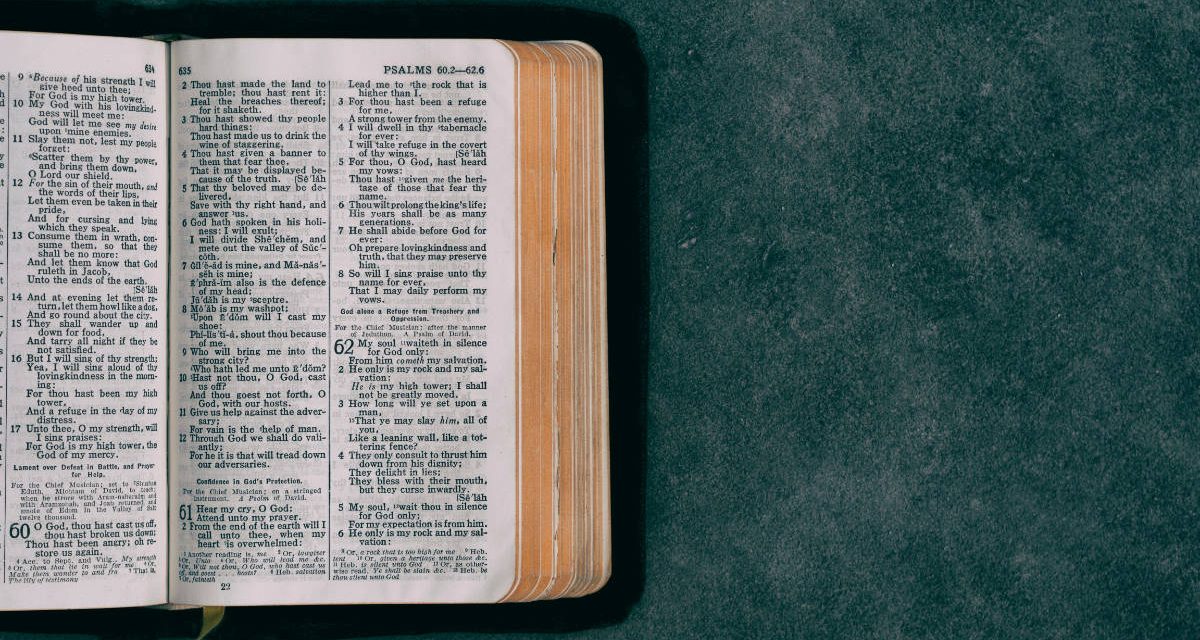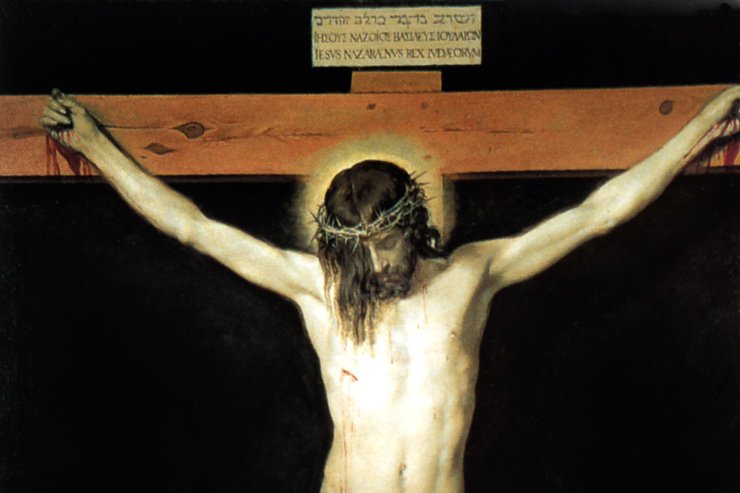The Psalms are the summit of prayer in the Old Testament, and they remain an essential prayer for the Church today. When we pray the psalms, we unite our prayer to Christ’s prayer, as he prayed them throughout his life.
How do you pray when you cannot find the words?
Try using the Psalms.
One of the riches of the Catholic tradition is the Liturgy of the Hours, or Divine Office. It is the communal prayer of the Church prayed to mark the hours of the day. Consisting of set Psalms, other readings from Scripture, and prayers that rotate on a four-week basis, it is prayed by priests and religious throughout the world. When you incorporate even part of the Divine Office into your daily routine, the words of Scripture become second-nature to your life. You’ll find certain phrases from the Psalms popping into your mind throughout the day. Isn’t this what we should all desire in our relationship with the Word?
By praying the Psalms, whether through the Liturgy of the Hours, meditating on the Psalm of the day’s Mass, or simply opening the Bible and picking one, we are using the Word of God to speak to God. The Psalms are the summit of prayer in the Old Testament, and they remain an essential prayer for the Church today. When we pray the psalms, we unite our prayer to Christ’s prayer, as he prayed them throughout his life.
Not only did Jesus pray the Psalms, he fulfilled the Psalms. Think of Psalm 118, for example, which we prayed at Mass last Friday, Saturday, and Sunday.
“The right hand of the LORD is exalted;
the right hand of the LORD has struck with power.
I shall not die, but live,
and declare the works of the LORD.” (Ps 118:16-17)
Think of Jesus praying this Psalm, putting his trust in his Father. Sure, this Psalm made sense before the Incarnation. But after? After Christ’s death and resurrection?
“The stone which the builders rejected
has become the cornerstone.
By the LORD has this been done;
it is wonderful in our eyes.
This is the day the LORD has made;
let us be glad and rejoice in it.” (Ps 118:22-24)
Again, think of praying this as the early Church prayed it. Yes, some of the Psalms could make perfect sense before Christ. But others were words awaiting fulfilment in Christ. We know the early Church understood this, because in Acts 4 we see Peter preaching this Christological understanding of this Psalm:
“If we are being examined today about a good deed done to a cripple, namely, by what means he was saved,then all of you and all the people of Israel should know that it was in the name of Jesus Christ the Nazorean whom you crucified, whom God raised from the dead; in his name this man stands before you healed.He is ‘the stone rejected by you, the builders, which has become the cornerstone.’ There is no salvation through anyone else, nor is there any other name under heaven given to the human race by which we are to be saved”
Acts 4:9-12
All of Psalm 188 is transformed when read in the light of Christ.
The next time you are struggling to find words for your own prayer, turn to the Psalms. As you pray the Psalm, consider the words you are praying several ways. Does it give voice to a feeling in your own heart? Does it point to Christ and his saving activity? If so, how does the coming of Christ change the way the Psalm might have been read in 60 AD vs 60 BC?
Return to the Psalms and try to read these words anew. These profound songs are both personal and communal, and they run a gamut of emotions. They can give voice to our own longing, pain, and deep questions. They can also provide for us the words of praise and trust in the Lord when we find it difficult to raise our voices in acclaim. Allow the Psalms to transform your fears into trust, your cries of distress into praise, and your uncertainty into confidence in the Lord. Pray the Psalms with Christ.
“The LORD is with me; I am not afraid; what can mortals do against me?” (Psalm 118:6)
Image credit: Photo by Aaron Burden on Unsplash
Please help spread the Gospel. Share this verse with family and friends on Facebook and other social media.
We need your support…
Can you give as little as $10 a month to support great Catholic content? We strive to operate on a very small budget, but we need your help. Both one-time and monthly donations of any amount are welcome. Just $10 a month will help cover the cost of operating Integrated Catholic Life for one day! Please help us bring enriching and inspiring Catholic content to readers around the world by giving today. Thank you!














